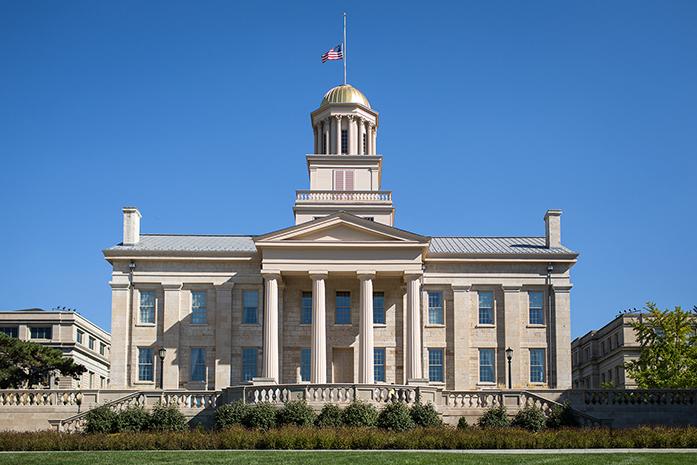A recent request by the state Board of Regents for $20 million has been reduced to $8 million by Iowa Gov. Terry Branstad to share among the UI, Northern Iowa University, and Iowa State University in an especially slim fiscal year.
Rep. Curt Hanson, D-Fairfield, who sits on the education appropriations subcommittee, said he has voiced concern about the universities sharing such funds.
“I want to see universities funded at a level that will mean Iowa students get a quality education,” he said.
Hanson said such low funds could shortchange the universities’ ability to provide a quality education.
“A quality education for Iowa students is something Iowa has prided itself on in the past, but we’ve seen a lot of slippage in the past seven or eight years,” he said.
Branstad spokesman Ben Hammes said the regents aren’t alone in making do with less.
“The budget is very tight this year,” he said. “There were some influences that really affected the amount of revenue we took in this year.”
Hammes blamed the strict budget on the bird-flu outbreak, lower commodity prices, and an increased world economy.
“We still had some growth, but it’s not as robust as we expected,” he said.
Budget items such as education funding are based on estimated revenue for the state, which is analyzed quarterly. Last reported in October 2015, the Revenue Estimating Committee said that the state would have an increase in revenue — 3.4 percent — for 2016.
While seemingly a positive result, the reported revenue in December showed a drop to 3.3 percent, totaling a loss of $9 million for state programs. However, Hammes said negotiations on the Branstad’s proposed budget are expected “for many weeks and months to come.”
“We’re at the beginning of this legislative process,” he said. “Most everybody is getting the same or less because of the tight budget that we’re dealing with.”
Sen. Julian Garrett, R-Indianola, who sits on the Appropriations Committee, said he worries the 2016 will, as recent years have, draw on the dwindling surplus money in the state, around $100 million.
“Every year, people come to us and tell us they just have to have more [money],” he said. “I know the regents are in that situation.”
Garrett said that as a result of prior financial commitments and a decrease in annual revenue, cuts have to be made.



